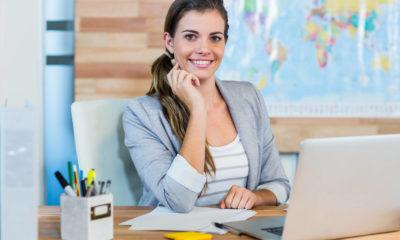Business
Avoid being a clueless tourist by brushing up on travel literacy
Travel literacy falls under two categories: understanding how the industry works and being aware of cultures and customs.

Now that vacation season is over, it’s time to start thinking about ways to improve your travel literacy—loosely defined as your ability to get around without looking like a clueless tourist—before your next trip.
“Travelers want to arm themselves with the skills to keep themselves safe in unknown destinations,” says Hailey Benton of Global Travel Academy, a site that offers video courses that improve your travel skills. “Traveling abroad should be exciting, inspiring and the best experience of your life. But if you leave home unprepared or uninformed, it can easily all go wrong.”
How do I know our collective travel literacy is lacking? I run a nonprofit consumer advocacy organization helps travelers every day. This summer, our caseload spiked to levels I’ve never seen. I’m talking hundreds of complaints a week and, often, more.
Most were the result of simple travel misunderstandings—people who wanted refunds on nonrefundable airline tickets or to be let off the hook for damage to their rental cars. No, Americans aren’t the world’s savviest travelers. Less than half of us even have passports.
Travel literacy falls into two broad categories: understanding how the travel industry works, with its often arcane rules and restrictions; and being aware of other cultures and customs. One is easy to overcome; the other isn’t.
I’ll start with the first one. At least 95 percent of it is reading the rules—all of them. A vast majority of misunderstandings with airlines, hotels and cruise lines end with travelers admitting they failed to review the terms of their purchase. That’s how they ended up with, say, a nonrefundable hotel room or a restrictive timeshare. Most of the remaining 5 percent is fixable with real-world experience.
The more you travel, the more you understand how the system works. It’s something you can’t learn in a classroom. (Less than 1 percent of the problems involved truly intractable issues that need a professional advocate—and that’s what I do.)
People who claim they can teach you the ins and outs of the travel industry, and make you more travel-literate with a simple course, are probably exaggerating. It’s true that you can pick up valuable skills on travel safety through a course like Depart Smart or learn more about optimizing your loyalty programs by attending Frequent Traveler University. But there’s nothing like being there.
So let’s talk about the second part of travel literacy, which is looking more like a citizen of the world than someone who’s never crossed a county line.
Read a book
The right travel book can educate, inspire and enlighten. “Good writing helps me to look at my surroundings with new eyes,” says Martha Merritt, dean of international education at the University of Richmond. Among her favorites: Bill Bryson (her favorite is “Notes From a Small Island”) and “The Art of Travel” by Alain de Botton. A book about travel, most travel-literate people tell me, is not necessarily a travel guidebook. It can simply be a book—fiction or nonfiction—about a place.

Reading books can help expand knowledge about a certain topic and sparks the imagination. (Source)
Find your affinity group on social media
That’s what Tiffany Burnette, who runs a design firm in Philadelphia, does between trips. She spends time on Facebook’s travel groups connecting with new friends and learning new travel skills. Among her favorites: GoWonder’s Female Solo Travel/Women Group Travel page and Weekend Wanderlust. “Many of them are specifically for women travelers, with tons of incredible advice in those groups,” she says.
Watch a movie or documentary
“While some movies can have gross misrepresentations of cultures and people, there are still an incredible amount of quality films and documentaries that give an authentic sense of place, context and history to wherever your travels may lead next,” says Ashley Blake, founder of Traverse Journeys. She cites the 10-part documentary “The Vietnam War” by Ken Burns and Lynn Novick as an example. The series, she says, “took a deep dive into the complexities of a place to help you appreciate the culture and perspective you’ll encounter while there.”
Learn a language
An app like Duolingo is a great way to brush up on your language skills before you travel. “I spend 15 to 20 minutes each day working on my basic language skills so that I can at least do the minimum to show respect,” says Jeff Wilson, the host of “Real Rail Adventures” on PBS. “Phrases like ‘please,’ ‘thank you,’ counting and asking basic travel questions. Wilson also likes virtual language immersion sites such as News in Slow Spanish, which helps you learn a second language through current events.
Take a virtual trip
Vanessa Valiente, a San Diego fashion consultant, downloads maps of her destination on her phone. “I like to study them to get to know the area before arriving,” she says. “I also download the top-rated transit apps of my destination. While planning my trip, I plug in the main addresses I will be using, like the airport to my hotel, or my hotel, and save them to the maps app. For example, London has several free tube apps, including the London Tube map. Paris does, too.
While these tools could make you a smarter traveler, only one thing is guaranteed to improve your travel literacy. You have to get out of your seat. If you’re a novice, start with a guided tour. You can start your journey by visiting your travel agent or selecting a tour operator from the United States Tour Operators Association website (https://www.ustoa.com). A competent tour operator can handle everything from hotel reservations to meals, so you can experience a destination relatively worry-free.
But there’s no substitute for on-the-ground travel experience, and there’s only one way to get it. You have to be there. Are you ready?
—
DISCLAIMER: This article expresses my own ideas and opinions. Any information I have shared are from sources that I believe to be reliable and accurate. I did not receive any financial compensation for writing this post, nor do I own any shares in any company I’ve mentioned. I encourage any reader to do their own diligent research first before making any investment decisions.

-

 Biotech2 weeks ago
Biotech2 weeks agoEurope’s Biopharma at a Crossroads: Urgent Reforms Needed to Restore Global Competitiveness
-

 Africa1 week ago
Africa1 week agoFrance and Morocco Sign Agreements to Boost Business Mobility and Investment
-

 Impact Investing2 weeks ago
Impact Investing2 weeks agoItaly’s Listed Companies Reach Strong ESG Compliance, Led by Banks and Utilities
-

 Fintech4 days ago
Fintech4 days agoFindependent: Growing a FinTech Through Simplicity, Frugality, and Steady Steps


























You must be logged in to post a comment Login